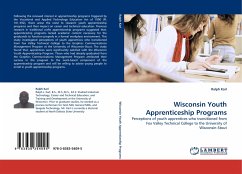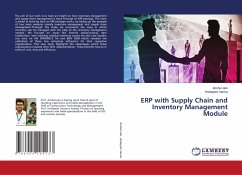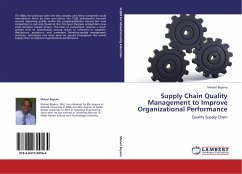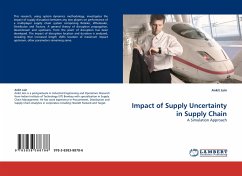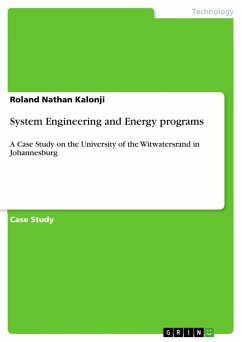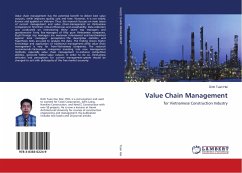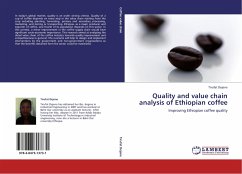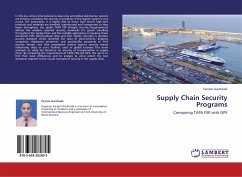
Supply Chain Security Programs
Comparing TAPA FSR with ISPS
Versandkostenfrei!
Versandfertig in 6-10 Tagen
32,99 €
inkl. MwSt.

PAYBACK Punkte
16 °P sammeln!
In this era, where international outsourcing and global distribution systems are thriving, providing the security of products in the logistic system is very crucial. For corporates, it is highly vital to know how secure high-tech products and materials are handled, warehoused and transported as they move throughout the globe. TAPA FSR (Freight Security Requirements) defines the smallest required security standards for goods travelling throughout the supply chain and the suitable approaches in keeping those standards. ISPS (International Ship and Port Facility Security) is another security stan...
In this era, where international outsourcing and global distribution systems are thriving, providing the security of products in the logistic system is very crucial. For corporates, it is highly vital to know how secure high-tech products and materials are handled, warehoused and transported as they move throughout the globe. TAPA FSR (Freight Security Requirements) defines the smallest required security standards for goods travelling throughout the supply chain and the suitable approaches in keeping those standards. ISPS (International Ship and Port Facility Security) is another security standard which identifies the tasks of governments, shipping companies, shipboard personnel, and port/facility personnel to find security threats and take preemptive actions against security events influencing ships or port facilities used in global business. This book attempts to study the literature on security of transportation in supply chain. By comparing the requirements of TAPA FSR and ISPS, the aim is to find their basic differences and to analyze to what extent the two standards respond to the crucial concepts of security in the supply chain.



